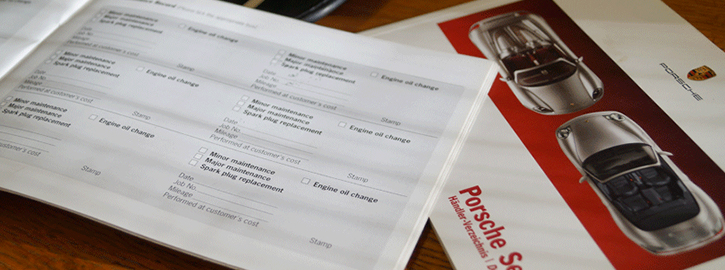Essential Paperwork to Keep When Selling Your Car

When the time comes to sell your car, whether it's to upgrade to a newer model or because your needs have changed, ensuring you have all the essential paperwork in order is not just about easing the transaction process; it's about protecting yourself legally and financially. This comprehensive guide will detail the documents you need, why they're important, and how to maintain them correctly.
Understanding The Required Documents

Before delving into each document, it’s crucial to understand that the paperwork needed can vary slightly by state or country, but some are universal requirements for selling a car:
- Title: This document proves ownership. A clear title is essential for a legal transfer of ownership.
- Registration: Shows that the vehicle is currently registered to you.
- Bill of Sale: A document that records the terms of the sale.
- Maintenance Records: Can significantly impact the perceived value and reliability of the car.
- Release of Liability: This protects you from liabilities after the sale.
Title - Proof of Ownership

The title, or certificate of title, is essentially your ownership document. When selling a car, the title is:
- The most critical piece of paperwork you’ll need.
- Typically signed over to the new owner upon payment.
💡 Note: In some jurisdictions, you might have to fill out a lien release form if there’s an outstanding loan on the car.
Registration Documents

Registration papers:
- Should be current. If your car’s registration has expired, renew it before the sale.
- Verify that all information on the registration document matches your car’s make, model, VIN, and year.
The Bill of Sale

A Bill of Sale:
- Contains details like the vehicle’s VIN, make, model, year, and sale price.
- Provides legal evidence of the transaction.
👉 Note: It’s wise to keep a copy of this document for your records, as it may be required for tax purposes or in case of future disputes.
Maintenance Records

These records:
- Can boost the resale value by showing the vehicle was well-maintained.
- Include oil changes, tire rotations, repairs, and routine maintenance.
Here’s a simple way to organize maintenance records:
| Date | Service | Service Provider |
|---|---|---|
| Jan 1, 2022 | Oil Change | Jiffy Lube |
| Mar 15, 2023 | New Tires | Firestone |

Release of Liability

This document:
- Frees you from responsibility for any accidents or tickets after the sale.
- Should be filed with your local DMV.
Navigating The Transfer Process

Once you’ve gathered all the paperwork, here are the steps to ensure a smooth transfer of the vehicle:
- Verify the Title: Make sure there are no outstanding liens or holds on the title. If there are, you’ll need to resolve these before the sale.
- Prepare the Bill of Sale: Draft a clear bill of sale, including all necessary details, and have it signed by both parties.
- Fill Out the Title: You’ll need to sign over the title to the buyer. In some places, a notary is required for this step.
- Notify the DMV: After the sale, inform the Department of Motor Vehicles (DMV) about the transfer to avoid any liability issues.
💡 Note: Some states might require an emissions test or safety inspection before the title can be transferred.
Legal Considerations

When selling your car, you should also consider:
- Odometer Disclosure: Federal law mandates you to disclose the accurate mileage on the odometer to the buyer.
- As-Is Sale: If selling the car ‘as-is’, this should be clearly stated in the Bill of Sale. However, some states do not allow this, so check local laws.
The Final Sale

After ensuring all paperwork is in order, the final sale involves:
- Exchanging documents and payment.
- Transferring the title.
- Notifying the DMV and obtaining a release of liability.
⚠️ Note: Always keep a copy of all documents for future reference.
In closing, the sale of a car is not just about the monetary transaction. It's a process that involves careful preparation to ensure both legal compliance and protection for both the seller and the buyer. Keeping thorough records, understanding legal obligations, and executing a clean transfer of ownership will make the sale of your car a smooth and beneficial experience.
Why is the title important when selling a car?

+
The title proves ownership and is required to legally transfer ownership of the vehicle. Without it, a sale cannot proceed.
Do I need to provide maintenance records when selling my car?

+
While not legally required in many places, providing maintenance records can increase trust and potentially the sale price by proving the car’s condition.
What happens if I forget to file a release of liability?

+
Failing to file a release of liability can make you liable for any accidents or violations after the sale, potentially leading to legal issues and financial obligations.
Can I sell my car if there’s still a lien on it?

+
You can sell a car with a lien, but you need to pay off the lien first or get the lienholder’s permission, and then have the lien released or satisfied on the title.
What’s the importance of an ‘as-is’ sale?

+
An ‘as-is’ sale means the buyer accepts the car’s current condition, which protects you from future claims related to any problems that might arise after the sale.



